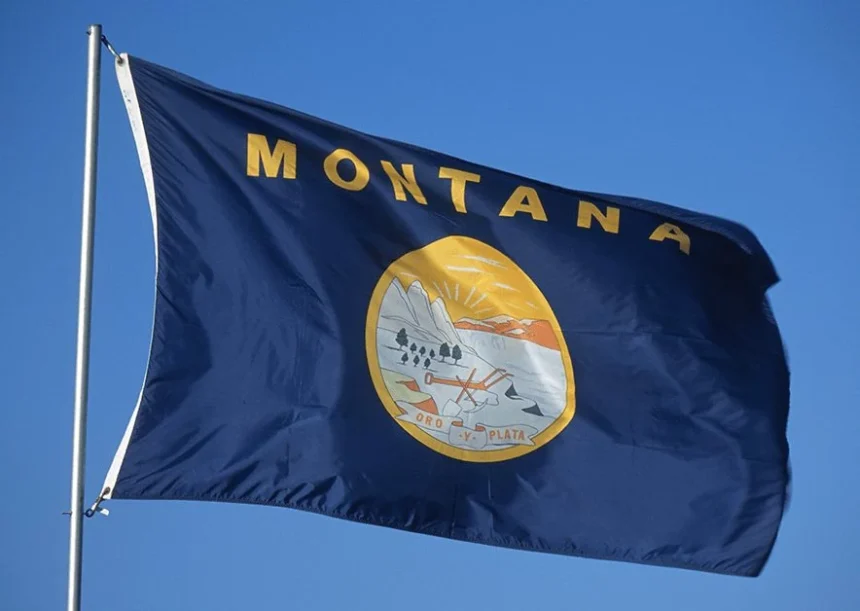
- Montana’s House rejected Bill No. 429 to make Bitcoin a state reserve asset, with 41 votes in favor and 59 against.
- Many Republican lawmakers opposed the proposal, citing concerns over taxpayer funds and potential risks in adopting Bitcoin as a reserve asset.
Montana is taking a different approach to Bitcoin as part of its financial strategy, despite increased interest in the cryptocurrency among US states. The Montana House of Representatives turned down Bill 429, a proposed law declaring Bitcoin the official state reserve asset.
Particularly given neighboring states, including New Mexico, Wyoming, Texas, Utah, and Florida, have gone more pro-crypto, the rejection has been controversial.
UPDATE: MONTANA’S HOUSE REJECTS BILL TO MAKE BITCOIN A STATE RESERVE ASSET, CITING CONCERNS OVER EXCESSIVE SPECULATION WITH TAXPAYER FUNDS
— BSCN Headlines (@BSCNheadlines) February 24, 2025
Concerns About Risk and Speculation
Originally, the rejected measure would let investments in digital assets—including Bitcoin—as long as their average market valuation over the past year exceeded $750 billion. Only Bitcoin would fit by these standards. Montana legislators are not totally convinced, though, that such expenditures are a smart one.
The supposed speculative risk of public money is one of the primary issues. State Representative Steven Kelly claimed that rather than squandering public funds on erratic investments, the government owes it to them protection. Bill Mercer, who was uneasy about allowing the Montana Investment Board to buy digital assets like Bitcoin or NFTs, also spoke in a comparable manner.
On the other side of the coin, there are voices thinking of this rejection as a lost chance. According to Representative Lee Demming, Bitcoin might be one of the tools used to maximize the return on public money, as the state should be searching for methods to do so.
Curtis Schomer, the sponsor of the measure, even cautioned that inflation might keep erasing Montana’s purchasing power without such an investing approach.
New Mexico and Other States Have Different Approaches
Unlike Montana, some other states have decided to let Bitcoin be more freely included into their financial policies. Under the Bitcoin Strategic Reserve Act, CNF reports New Mexico is contemplating investing 5% of public monies in Bitcoin. With rigorous control to reduce too great speculative risk, this action seeks to create an alternative treasury more resistant to devaluation of traditional currency.
Apart from New Mexico, Wyoming, Texas, Utah, and Florida, other states have also embraced more crypto-friendly laws. These states acknowledge Bitcoin’s possible long-term worth as a tool for financial diversification and a store of value overall. For instance, Texas is aggressively drawing Bitcoin mining businesses to its boundaries, while Wyoming has long been a leader in progressive crypto laws.
Potential Impact If More States Join In
Montana is not unusual in the argument over Bitcoin as a state reserve. According to a report from VanEck’s head of digital asset research cited by CNF, there are 20 states in the US that have introduced similar proposals. Should all of these ideas be eventually accepted, governmental investment might generate an estimated $23 billion into the crypto industry.
This is definitely not a tiny amount, and it might significantly affect the broader Bitcoin ecosystem. Retail and institutional investors have so dominated the crypto industry thus far; government acceptance has been rather limited. This tendency might alter going forward, though, as more states investigate using Bitcoin as part of their financial policies.
Montana Missing an Opportunity or Playing it Safe?
Montana’s choice to reject the measure finally raises the issue: was this a calculated action or a lost chance? Currently, Montana appears to be an exception rather than the norm, given that other states have already begun to accept Bitcoin.
For many supporters of cryptocurrency, this decision seems like a retreat. Given rising inflation and increasing economic instability, Bitcoin is sometimes regarded as a tool for hedging against devaluation of fiat money. For more conservatives, however, this action is considered a wise one.
The future of Bitcoin as part of the state’s financial reserves remains in question. If this trend of adoption continues, it is possible that Montana may eventually have to rethink its decision.






